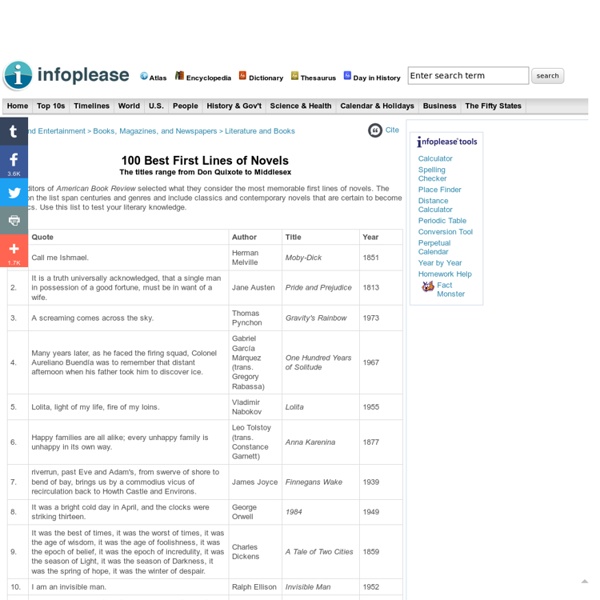



Dragon Writing Prompts :: Character traits :: September :: 2007 Here’s an extensive list of character traits. You can pick a couple or three to form the basis of a character. Then create a character with the opposite traits to form a friend, enemy, sibling, mentor … ? While there’s a great deal to be said about nature forming our characters, it’s a lot more interesting for a story if there’s a background reason! Pick all from one list or all from different lists or mix them up and choose completely randomly. If you love lists, there’s another list: Raymond Cattell’s 16 Personality Factors . Positive traits Depends on the context whether they’re positive or negative Generally negative descriptors, but not aspects that make you want to keep your distance Quite negative, people you want to have as little contact with as possible Pretty darn evil Abusive Cruel Dishonest Hateful Inhumane Masochistic Psychopathic Psychotic Ruthless Sadistic Traitorous Tyrannical Vengeful Wicked
The Last Trail - Fyodor Dostoyevsky Share Book Recommendations With Your Friends, Join Book Clubs, Answer Trivia Color Theory for Designers, Part 1: The Meaning of Color - Smashing Magazine Personality Traits, Character traits, Human Traits, personal characteristics, human qualities, Traits of Human Consciousness, human makeup, personal attitudes, negative attitudes, positive attitudes, list, makeup of the individual human, endowments, consc Several Steps Further: Aside from the listing above, traits of human consciousness can be viewed from a number of other perspectives. Here are several: Traits Organized from Psychological (Inner-oriented) to Social (Outer-oriented) Human personality/character traits can be divided by those that are inner/psychological; and those that are outer-oriented/social. (They can then be further divided positively and negatively.) Traits Expressing in the Vertical Scale of Human Consciousness (Physical, Vital, Mental) The individual human expresses exits at three fundamental planes or levels of being -- mental, vital, and physical. ARTICLE: Positive and Negative Human Traits (from a spiritual perspective) New Fundamental Traits/Capacities that Enable Higher Achievement and Personal Growth Spiritual Traits/Capacities that Enable Vastly Higher Achievement, and Personal Growth Negative Traits/Capacities that Retard Achievement & Personal Growth Personal and Society's Values
The 16 Best Dystopian Books Of All Time Dystopian novels—stories of the horrific future—are so common as to be almost forgettable. Here is a compilation of what I believe are the 16 greatest of the genre. I could happily list twice as many that are amazing, but these are the best. From the post-apocalyptic wasteland to deadly viruses to social malaise, all possible bad futures end here. 16. That Hideous Strength by CS Lewis Best known for his Narnia novels, CS Lewis also wrote a trilogy dealing with visiting other planets—well the first two books did. 15. Wow, can you get more polar opposite of CS Lewis than Margaret Atwood? 14. While perhaps not as well known as some, John Christopher (the pen name of Samuel Youd) wrote a fantastic trilogy of young adult novels, set in a far future where the world has reverted to a feudal society after a global ecological disaster. 13. This novel, combined with Brooks’ Zombie Survival Guide are all you need to face the inevitable zombie apocalypse. 12. 11. 10. 9. 8. 7. 6. 5. 4. 3. 2.
Tolstoy's Answer | The Creative Intelligence Blog. Monday, September 20th, 2010 It’s short story time. This one’s by Leo Tolstoy, the writer every aspiring novelist should read. Daily, if possible. It’s called: ‘Three Questions’ and some of you may know it as it’s rather famous. It’s not too long. One day it occurred to a certain emperor that if he only knew the answers to three questions, he would never stray in any matter: What is the best time to do each thing? The emperor issued a decree throughout his kingdom announcing that whoever could answer the questions would receive a great reward. In reply to the first question, one person advised that the emperor make up a thorough time schedule, consecrating every hour, day, month, and year for certain tasks and then follow the schedule to the letter. Another person replied that it was impossible to plan in advance and that the emperor should put all vain amusements aside and remain attentive to everything in order to know what to do at what time. “How’s that?” Post by: Orna Ross
Did you know